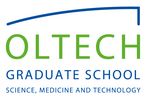Contact persons at OLTECH
If you have a conflict with supervisors, superiors or doctoral researchers that you cannot resolve on your own, contact OLTECH. We listen to you, advise you and put you in touch with an ombudsperson. We will treat your concerns confidentially and will only involve other persons if you agree to this.
Contact:
Ombudspersons of the University Oldenburg
... are low-threshold contact persons for all students and employees of Oldenburg University and help to clarify intercultural and other misunderstandings at an early stage, mediate experts in conflict resolution and thus ensure a positive working atmosphere.
Ombudsman for Science
... is an independent body set up by the Deutsche Forschungsgemeinschaft (DFG, German Research Foundation) to assist all scientists and academics in Germany of any employment status with questions and conflicts in the area of good scientific practice (GWP) and scientific integrity.
Principles of good scientific practice
of the University of Oldenburg
Scientific work at the Carl von Ossietzky University of Oldenburg is subject to the Guidelines of good scientific practice (German) of 05.10.2022 Guidelines of good scientific practice (English) of 05.10.2022 which take up the recommendations of the German Research Foundation of 1998.
Good Scientific Practice
Good scientific practice is the overall prerequisite for research and teaching. Its goal should be a self-critical attitude towards the obtained scientific results. The exact observance of discipline-specific rules for dealing with sources and data must be consistently adhered to. External and own preliminary work must be completely and correctly accounted for.
Science is based on honesty. This is one of the essential principles of good scientific practice and thus of any scientific work.
Scientific integrity forms the basis of trustworthy science. It is an expression of scientific self-obligation which includes respectful treatment of each other, study participants, animals, cultural assets and the environment, and strengthens and promotes society's indispensable trust in science.
In order to provide orientation, the DFG's Commission on "Self-Regulation in Science" drew up the Memorandum on Safeguarding Good Scientific Practice already back in 1998. According to this document, scientific institutions and faculties are obliged to comply with good scientific practice and to monitor themselves.
The process of reflection and discussion on this topic continued to develop in science and scientific organizations. Hereby, individual facets have been added or have gained new or different significance which were taken into account in the recommendations of the Zur Sicherung guter wissenschaftlicher Praxis / Safeguarding Good Scientific Practice (2013).
In public, "good scientific practice" is often equated with cases of plagiarism in doctoral thesis. However, the topic encompasses a much broader spectrum of scientific behaviour:
- the proper handling of data (including collection, documentation, ownership and retention),
- the publication process and authorship,
- responsible supervision,
- scientific cooperation,
- the disclosure of conflicts of interest,
- the appropriate handling of interpersonal conflicts.
- Scientific misconduct occurs, for example, when data is invented or falsified, intellectual property is violated (theft of ideas or plagiarism) or the research activities of others are sabotaged.
Scientific work at the University of Oldenburg is subject to the Regulations governing the principles for safeguarding good academic practice at the University of Oldenburg issued October 5th, 2022, which implement the 19 guiding principles and their explanations for safeguarding good scientific practice (Kodex) of the Deutsche Forschungsgemeinschaft (DFG).
In the case of potential misconduct, this suspicion is investigated according to the regulations governing the principles for safeguarding good academic practice at the University of Oldenburg issued October 5th, 2022. The responsible points of contact would be the ombudspersons and the Committee for Good Scientific Practice at the University of Oldenburg.
In the event of a suspicion of scientific misconduct, a procedure is initiated. The contact persons are the chairpersons of the Commission for Research Assessment and Ethics of the Carl-von-Ossietzky University Oldenburg.
COURSE "Good Scientific Practice - Protecting Scientific Integrity" for doctoral students
The main objective of the workshop "Good Scientific Practice - Protecting Scientific Integrity" is to learn the basic rules and values for responsible research at all stages of doctoral studies according to local, national and international regulations and guidelines. Participants explore the differences and grey areas between good scientific practice, questionable research practice and scientific misconduct. They learn how misconduct can be identified and prevented, how it should be dealt with and what damage it can do if not handled properly.
Further information can be found here
eLearning course "Good Research Practice during Doctoral Studies"
Good Research Practices during the Doctorate
How should research results be documented? What is the right way to cite? How does one handle image sources? Answers to questions about correct scientific work practices are provided in the eLearning course "Good Research Practice during Doctoral Studies" that is available in German and English language. GRADE, the (post)graduate academy of Goethe University, has designed this course, which has won prizes by now, to be interdisciplinary and has made it available to the University of Oldenburg and its doctoral candidates among others



